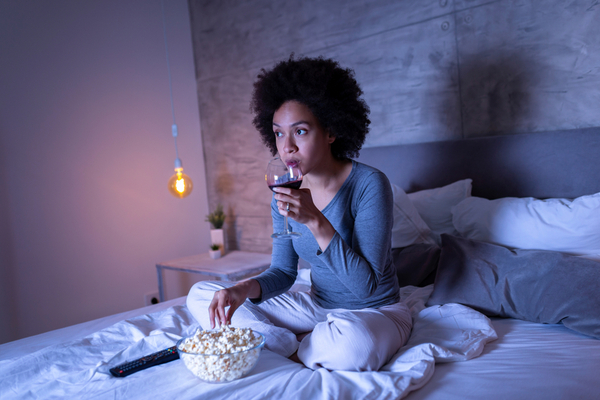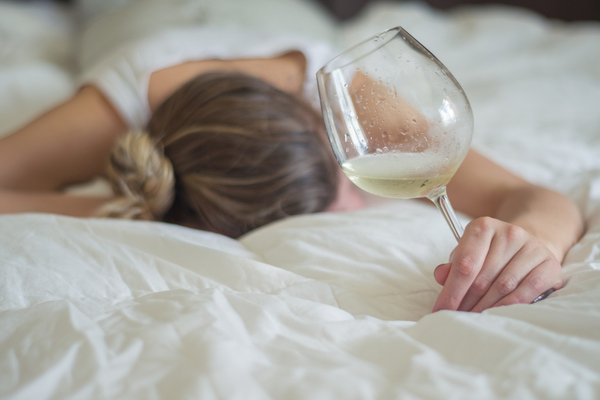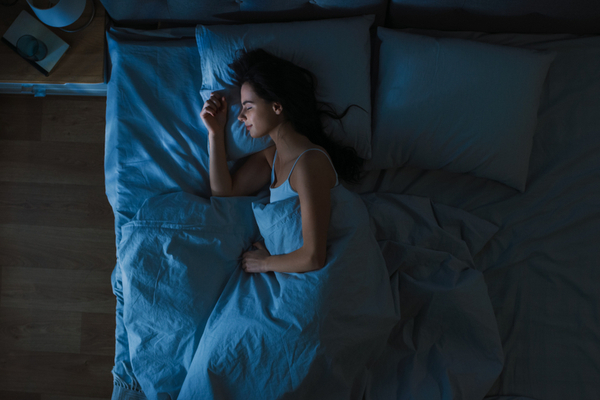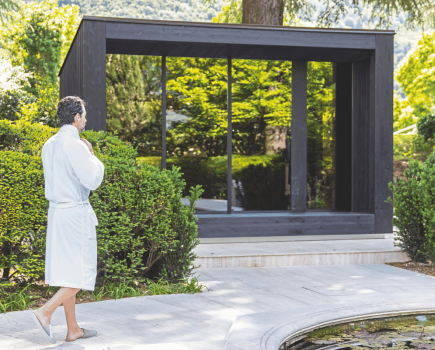Alcohol might feel like the answer to help you get to sleep at night, but it’s far from ideal, says William Porter, an ex-paratrooper, solicitor and sobriety expert and now author of new book Alcohol Explained.
It’s Sober October and thousands of Brits are ditching the booze, albeit temporarily, to raise money for charity at the same time as giving their livers as well as their waistlines a rest from the effects of alcohol.
And it’s only a matter of time, of course, before we do it all again for Dry January, after the excesses of the festive period. But how much do we really know about the effects of alcohol on our bodies?
William’s book provides a simple and accessible explanation of how alcohol affects us on a chemical, physiological and psychological level. It explores the effects of alcohol on your sleep, and why even just one glass of wine can have a disastrous impact on your liver and brain.
“One of the main bodily functions alcohol can affect in the short term is our sleep,” explains William. “Here’s the basic bottom line; the more you drink, and the closer your drinking is to bedtime, the more it will negatively impact your sleep. Even moderate amounts of alcohol in your system at bedtime alters your sleep architecture – the natural flow of sleep through different stages.
“It also leads to lighter, more restless sleep as the night wears on, diminished sleep quality, and next-day fatigue. For many people who drink moderately, falling asleep more quickly may seem like an advantage of a nightly glass of wine. But alcohol goes on to affect the entire night of sleep to come.”
What does alcohol do to a night of sleep?
1. Alcohol lowers your sleep quality
The first and biggest thing that booze does is it lowers the overall quality of your sleep. While you might feel as though it makes you drowsy and therefore it’s easier to fall asleep, William warns that the quality when you get there is not the same as it would have been without the booze.
“You may find that when you have been drinking, you frequently wake in the middle of the night. While alcohol does increase a particular ‘sleep-inducing brain chemical’ which helps with the onset of sleep, it doesn’t hang around – meaning you’re likely to wake before feeling truly rested.”
2. Alcohol lowers your REM sleep
Light, deep and rapid eye movement (REM) sleep are all very important to have a full sleep cycle. But drinking – even just a glass – significantly lowers and can even block the restorative REM cycle.
“REM (Rapid Eye Movement) sleep is where most of our dreaming, memory consolidation and learning occurs, and non-REM sleep, where our brain activity is at its lowest, helps us feel refreshed in the morning,” comments Porter. “If you wake and don’t feel fully rested after drinking, it’s likely that your REM rest was compromised.”
3. Alcohol will make you snore
Alcohol will not just impact the quality of your sleep, but it also acts as a muscle relaxant which has an effect on the throat and can lead to snoring. Snoring often reduces your sleep quality, too, meaning you wake up more in the middle of the night.
4. Alcohol causes you to need the bathroom
As alcohol is a diuretic, meaning it causes the body to expel water, it causes people to need to go to the bathroom. This might mean that you wake up earlier in the morning or even in the middle of the night, thus affecting the quality of sleep.
5. Alcohol dehydrates you
Finally, drink will make you feel dehydrated, which could also wake you up as you feel as though you need some water.
How exactly does alcohol create this disruptive effect on sleep?
“The alcohol usually wears off after around four to five hours, which is when the over sensitised brain kicks in from trying to counter the sedating effects of the alcohol. If you usually go to bed around eleven, you can expect to be awake around four,” says William.
“The over-sensitisation caused by the evening drinks will not only mean you cannot sleep, but will also mean you wake up feeling anxious and out of sorts. The effect is much the same as setting an alarm for the middle of the night and drinking a few mugs of strong black coffee.”
Why is there such a widespread belief that alcohol assists sleep?
“The problem is due to another brain function,” he explains. “When we start nearing bedtime, our brain starts to shut things down so that we can slowly drift off to sleep. When you drink regularly your brain stops going through this process because it starts to rely on the sedating effects of the alcohol to shut things down.
“If you drink regularly and have a day off, you will probably find it incredibly difficult to fall asleep. You will need a few nights alcohol-free before your brain goes back to shutting things down itself.”
The problem is that for the first four of five hours of booze-induced sleep your body struggles to go into REM sleep, because the sedating effects of the drink prevents the brains from entering into the lighter sleep cycles of REM sleep.
And after those four or five hours, when the overstimulation kicks in, you’re unlikely to be able to sleep at all.
So if you’re looking to get your eight hours of beauty sleep and regain some of that lost energy, a break from the booze might be the best thing for you.
Alcohol Explained: Understanding why you drink and how to stop, by William Porter, is available now on Amazon









